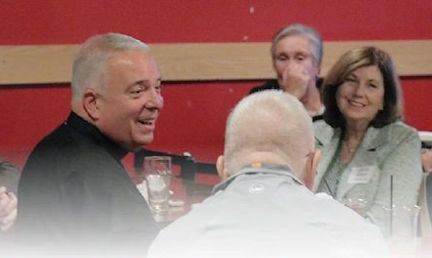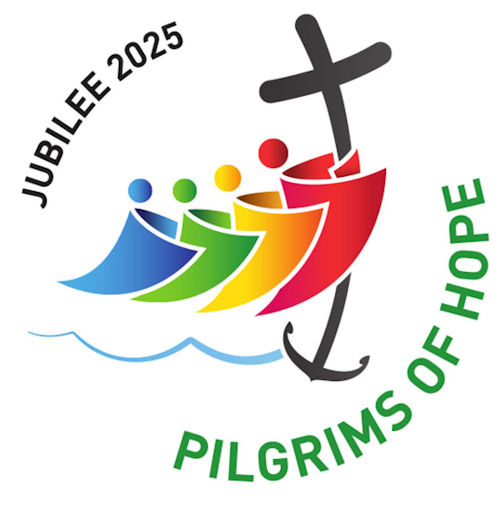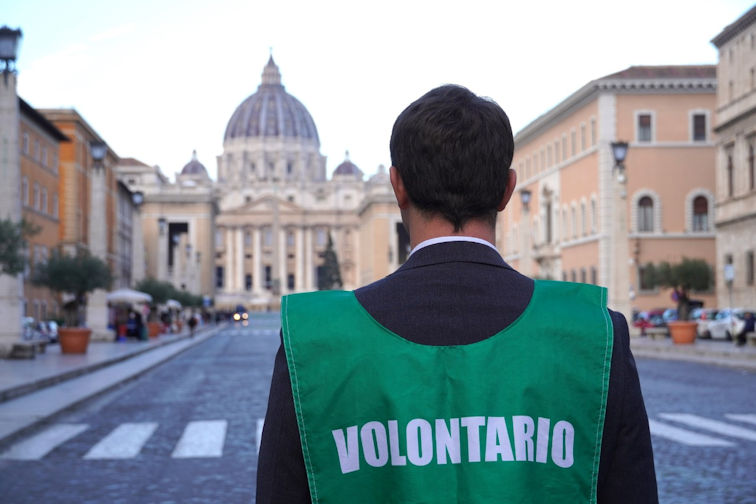

So far, I have posted thirteen reflections — those indicated in the first column. You can click on the images there or use the navigation bar toward the top of each page. I have come to know something about these individuals over the years — often as historical figures, but sometimes in person — and I am trying to learn more, and sharing that knowledge with anyone who might be interested. So, welcome! And enjoy!
Click Image Above for the Video
The Vatican Dicastery for Communication has produced the documentary "Leo from Chicago," with interviews, footage, and images that trace the history and explore the roots of Robert Francis Prevost in the United States, including in-depth interviews with Louis and John Prevost. A production by journalists Deborah Castellano Lubov, Salvatore Cernuzio, and Felipe Herrera-Espaliat.
It is also available on the Vatican's YouTube channel. If you have a smart TV, say: "YouTube - Vatican Channel - Leo from Chicago."

Archbishop Pérez published a Pastoral Letter on June 25, 2025, to update progress on the implementation of the new path to ministry proposed in his January 5, 2025 Pastoral Letter. This is the text of his letter:
Dear Brothers and Sisters in Christ,
I am deeply grateful to the thousands and thousands of you who accepted my invitation to take part in conversations about the Church of Philadelphia and the path we will walk toward a vibrant future. Your presence, candor, and heartfelt sentiments moved me deeply, and it was clear the Holy Spirit was working through you.
What I Heard from You
Your voices revealed both honest struggles and vibrant hope. While some shared difficult experiences of hurt and frustration with our Church that were difficult but necessary for me to hear, many others expressed hope and enthusiasm for this new era in our Church's life.
The themes that you brought forward most frequently are outlined below.
Reaching out to Everyone: You echoed my sense of urgency and sadness that 83% of baptized Catholics are not engaged with our Church. At the same time, you emphasized the importance of supporting those who have remained faithful while also evangelizing those who have never encountered the person of Christ and his compassionate love through the Catholic Church.
Understanding why People are Away: Many of you courageously reminded me of the many reasons that people either distanced themselves from the Church or felt pushed away through stories about your faith journeys and those of your loved ones. We must continue to listen with open hearts and true Christian charity in order to bring them closer to Christ.
Ensuring Accountability: You emphasized the need for transparency, accountability structures for Missionary Hubs, and addressing potential resistance to this new model. You also raised important questions about sustainable funding and the need to endow this missionary initiative for the good of the long-term growth and sustainability of the Church.
Supporting Existing Ministries: My heart was filled with joy to hear wonderful witness stories about initiatives already flourishing in our Church. These great works must continue! I'm especially grateful for testimony from lay and consecrated women about their essential leadership and desire to expand their impact.
Practical Implementation: Your insightful questions about how this plan affects existing processes will be answered through pilot missionary hubs launching this year. Please join me in praying for our pioneer parishes as they begin this journey!
Fostering Collaboration: Many of you expressed desire for greater collaboration and resource sharing among parishes to build stronger community and mutual support. Our communities have diverse gifts, and we needn't duplicate efforts. This plan aims to empower each community to leverage its unique strengths.
Moving Forward Together
Over the next six months, we will launch our pilot Missionary Hubs, appoint Parish Life Directors, and begin discerning the first wave of Hubs. We will also ensure every parish leader can engage with insights from our recent parish survey and explore sustainable funding for our missionary focus.
I look forward to continuing our conversation through smaller leadership gatherings and comprehensive digital outreach efforts. Please watch for my next update on the first anniversary of my pastoral letter this January.
Let us remember Christ's mandate and promise: "Go, therefore, and make disciples of all nations, baptizing them in the name of the Father and of the Son and of the Holy Spirit, and teaching them to observe all that I have commanded you. And behold, I am with you always, to the end of the world." — Matthew 28: 19-20.
May we all continue to accept the invitation to trust and hope in our Lord and to pray for one another.
Sincerely in Christ,
Most Reverend Nelson J. Pérez, D.D.
Archbishop of Philadelphia

Jubilee 2025
Jubilee 2025 began on December 29, 2024, when the Holy Door of the Basilica of St. Peter in the Vatican was opened. The Jubilee will conclude with the closing of the Holy Door of the Basilica of St. Peter in the Vatican on January 6, 2026. The theme of the Jubilee is "Hope does not disappoint." Pope Francis prays that the Jubilee will be a moment of genuine personal encounter with the Lord Jesus, the door of our salvation, whom the Church is charged to proclaim always, everywhere, and to all as "our hope."
During Jubilee 2000, I was blessed to attend the Jubilee of People with Disabilities. Click here for my memories of that "Weekend in Rome."

BECOME A JUBILEE 2025 VOLUNTEER
If you are over 18 and want to have a special — and active — experience of the Holy Year, by assisting the numerous pilgrims who are going to Rome to enter through the Holy Door, this is your chance!
You can offer your service for one or more weeks, or for specific jubilee events, in a unique experience: helping those in need of assistance and information along the pilgrimage routes that lead to the Holy Doors of Rome's four Pontifical Basilicas.
It seems to me that this would be a great opportunity for a college student or other young adult — or possibly a high school teacher — who is into his or her Catholic faith to experience the Jubilee and interact with other volunteers and pilgrims from all over the world. Seminarians and male and female novices in religious communities who wish to volunteer require the written approval of their rector or formator. Knowledge of the Italian language is preferable, but not mandatory. If you have any language skills, it seems to me that you will have opportunities to use them with pilgrims and with other volunteers.
Other basic requirements are: